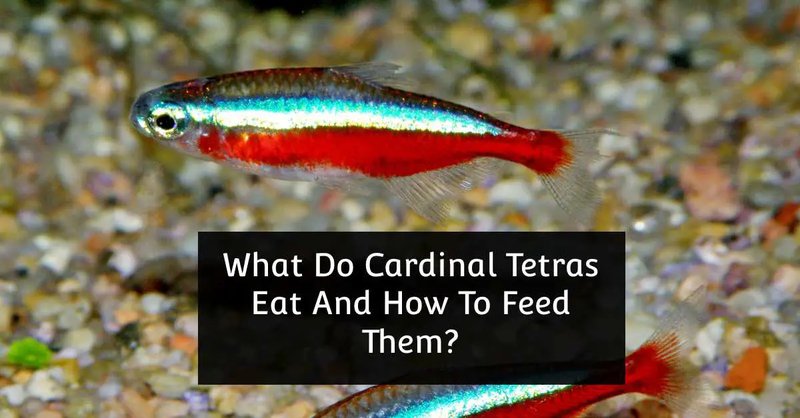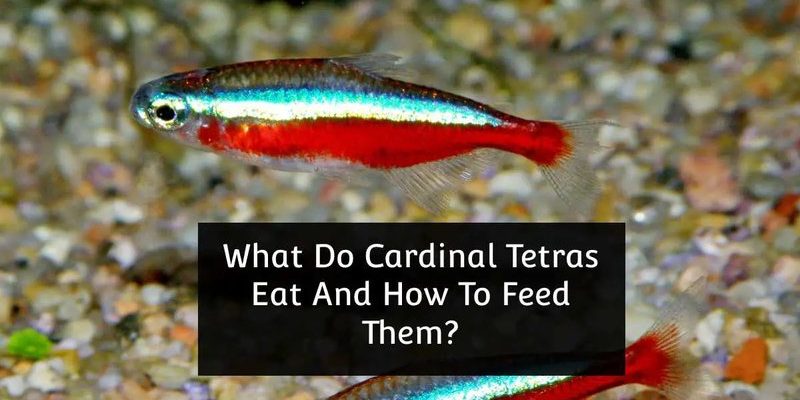
Think of feeding tetras like preparing a balanced meal for a kid. You want to mix different foods to get the right nutrients, keep it interesting, and make sure they’re getting enough without overdoing it. Tetras are primarily omnivores, which means they enjoy a mix of plant and animal-based foods. Let’s dive into the ins and outs of what to feed your tetras, how often to do it, and some handy tips to make sure they’re thriving.
Understanding Tetra Diet Basics
Tetras, such as the popular Neon Tetra or Cardinal Tetra, typically eat a variety of foods in their natural habitat. In the wild, these little fish feast on tiny insects, zooplankton, and plant matter. This varied diet helps them to thrive and develop bright colors, which can be a sign of health and vitality. When it comes to your aquarium, replicating this natural diet is crucial.
You might be wondering why diet matters so much for tetras. Just like humans, fish need specific nutrients to grow and stay healthy. A well-balanced diet contributes to their color, energy levels, and overall well-being. If you’re looking after tetras, think of their diet as your way of giving them a good start in life.
Let’s explore the main types of foods tetras thrive on, and how you can incorporate them into their diet easily.
Types of Food for Tetras
When it comes to feeding your tetras, there are several types of food you can offer, each with its own benefits. The main categories include:
- Flake Food: This is a common staple for many fish, including tetras. Easy to find and serve, flakes provide essential nutrients. Look for high-quality brands that specify they are suitable for tetras.
- Granular Food: Granules are slightly larger than flakes and often sink, which can appeal to many tetra varieties. They’re a great addition if you have a mixed community tank.
- Frozen or Freeze-Dried Food: These options include bloodworms, brine shrimp, or daphnia. They add variety and excitement to your tetras’ meals, mimicking their natural diet.
- Live Food: If you’re feeling adventurous, live food like daphnia or mosquito larvae can be a treat for tetras. Just be sure to source them from a clean environment to avoid introducing disease.
- Vegetables: Tetras also appreciate some plant matter. Consider adding blanched peas or spinach occasionally for extra nutrients and variety.
Mixing these different food types will keep your tetras happy and healthy. Plus, it’ll make meal times more exciting for both you and your fish!
Feeding Schedule for Tetras
Now that you know what tetras eat, let’s talk about how often you should be feeding them. A regular feeding schedule ensures they’re getting the right nutrients without overfeeding, which can lead to water quality issues.
Most aquarists recommend feeding tetras 2-3 times a day. You’ll want to give them just enough food they can consume in about two to three minutes. This may take some practice to gauge. You’ll likely find yourself curious to see how much they eat, and it’s essential to keep an eye on how quickly they consume their food.
Here’s a simple feeding strategy to follow:
- Morning: Serve a small amount of flakes or granules.
- Afternoon: Add some frozen or freeze-dried food for variety.
- Evening: Offer a mix of veggies or another type of food to round out their diet.
By spreading out their meals, you give tetras the chance to digest their food properly without overwhelming their little stomachs. Plus, a consistent schedule helps you observe their behavior and spotting any potential health issues.
Common Feeding Mistakes to Avoid
Feeding tetras might seem straightforward, but it’s easy to make a few common mistakes that could harm their health. Let’s break down the pitfalls to avoid:
1. Overfeeding: This is a frequent error for many fish owners. Tetras have tiny stomachs, so it’s better to err on the side of caution. Overfeeding can lead to water quality issues, which can stress your fish and lead to illness.
2. Not Varying Their Diet: Tetras can get bored with the same food all the time. Just like you wouldn’t want to eat the same meal daily, keep their diet interesting by rotating between different food types.
3. Skipping Meals: While it’s crucial not to feed them too much, don’t forget to feed them altogether! Regular meals are essential for their health.
By being aware of these common feeding mistakes, you can ensure your tetras are being fed properly without any stress on their health—and yours!
Feeding Tips for Specific Tetra Species
Different tetra species may have slightly different dietary needs. For example, Neon Tetras often thrive on high-protein foods, while others, like Black Phantom Tetras, may benefit more from a balanced diet that includes plant matter. Here’s a quick guide:
– Neon Tetras: Focus on protein-rich foods and high-quality flakes. They also enjoy live food on occasion.
– Cardinal Tetras: Similar to Neon Tetras, they love a mix of flakes, frozen, and plant matter.
– Black Tetras: These fish enjoy a balanced diet, so include both protein and plant-based foods.
Understanding the specific dietary preferences of each species can help you provide a more tailored diet, ensuring they thrive in your aquarium.
Feeding tetras may seem simple, but it’s an essential part of keeping your little swimmers happy and healthy. By understanding their dietary needs, establishing a consistent feeding schedule, and avoiding common mistakes, you can ensure your tetras are thriving in their aquatic home.
Don’t be afraid to experiment with different food types and observe how your fish respond. They’re not just colorful decorations; they’re lively creatures that deserve the best care. So, stock up on a variety of foods, stick to a feeding schedule, and watch your tetras flourish. Happy fish keeping!

